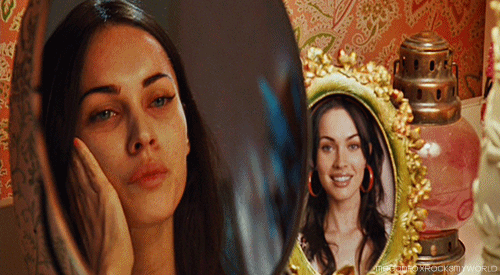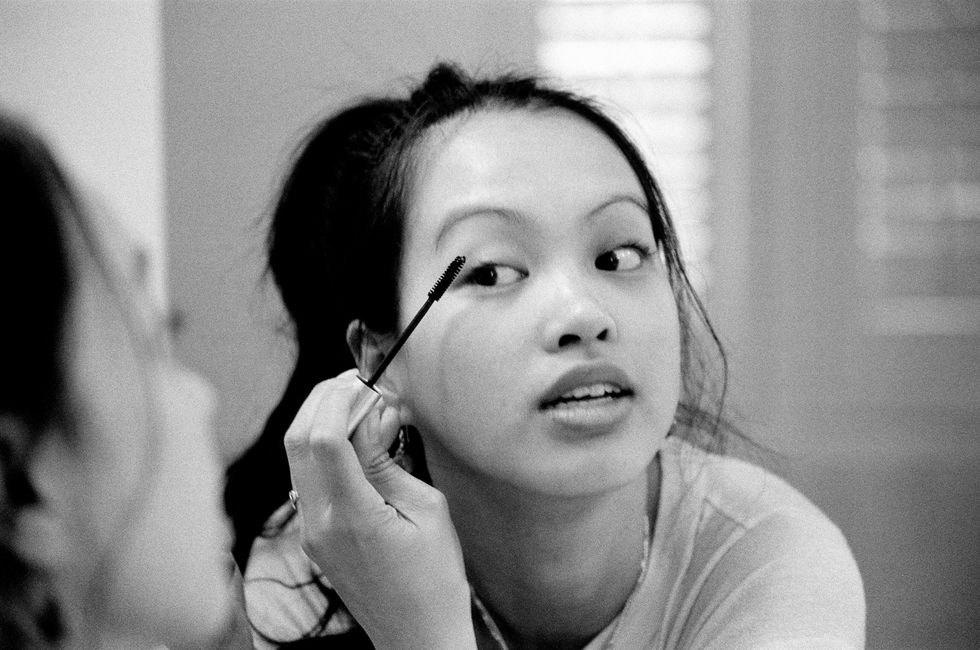A form of mental illness that not a lot of people talk about is Body Dysmorphic Disorder, or BDD. The first person that I heard speak on it was Lili Reinhart from Riverdale.
One Twitter, she said, "Telling someone they don't deserve to feel insecure because their body is 'fine' or 'just like' whomever ... is wrong. That's part of the problem."
Body Dysmorphia is characterized as a mental illness in which a person obsessively focuses on at least one perceived flaw in their appearance. It is considered a relative to OCD.
In a world where society harps on appearance, it's not hard to pick at your flaws. However, there is a clear difference between the common insecurities and the insecurities that you obsess over, physically real or not. Here are a few things you should know before you shove this mental illness aside like it's nothing.
These insecurities can be real or imagined.
The insecurities that people who suffer from BDD can either be real or imagined. They see themselves in a way that could be completely different to others, and it is possible that they can only see these flaws. They can be materialized by the mind, instead of what's really there.
Repetition is heavy.
 Giphy
GiphyWhether it's body picking, hair tugging, or consistently checking the mirror, repetition in BDD is prominent in one's routine. They can't help it. It's hard to pull themselves away from checking to see if they look 'ok' or not, or even picking at the skin anxiously in a behavioral response.
It's hard to ignore.
It's a constantly nagging illness that demands your attention. This makes it hard for the person suffering with the illness to do some tasks. They can get distracted with the thought of their flaws and concerns, despite how much they don't want to think about it.
It effects both men and women.
A lot of people think only women go through BDD, but that isn't the case. Both men and women are effected in their own respective ways. Men can be just as insecure as women. Don't judge or misconstrue before you ask questions.
Those suffering live in shame.
While others may try and convince those suffering with BDD that there's nothing wrong, this doesn't stop the constant hyper-focus on these flaws, real or imagined. These people tend to have low self-esteem, can refuse to be in pictures, avoid mirrors all together, wear excessive makeup, or even partake in multiple cosmetic procedures to no satisfaction.
The talk of treatment...
 Giphy
GiphyMost forms of treatment include therapy or medication, depending on the severity of the person's individual illness. It's hard to admit such private thoughts you have to someone. Sometimes it's hard to even notice the things you do, since the routine becomes so normal. However, if there is any inkling that you may have BDD, don't hesitate to talk to someone who could help.
As for why you may not have heard of it, it's probably because society has such high beauty standards, that it becomes normalized to be insecure and think nothing of it. You're expected to deal with it if you aren't happy with yourself, that you aren't like the people in the magazines. Society has normalized insecurity in a way that makes it hard to find someone who isn't uncomfortable with themselves. It has been normalized so much that people just think its normal to obsess over your appearance, so most go undiagnosed and without help.
However, if you ever think that you may have BDD or any other mental illness, please seek help. You won't regret it. Tell someone that it's easy to confide in, a friend or family member, and then take the next step to getting the help you need.



 Photo by
Photo by  Photo by
Photo by  Photo by
Photo by 



















